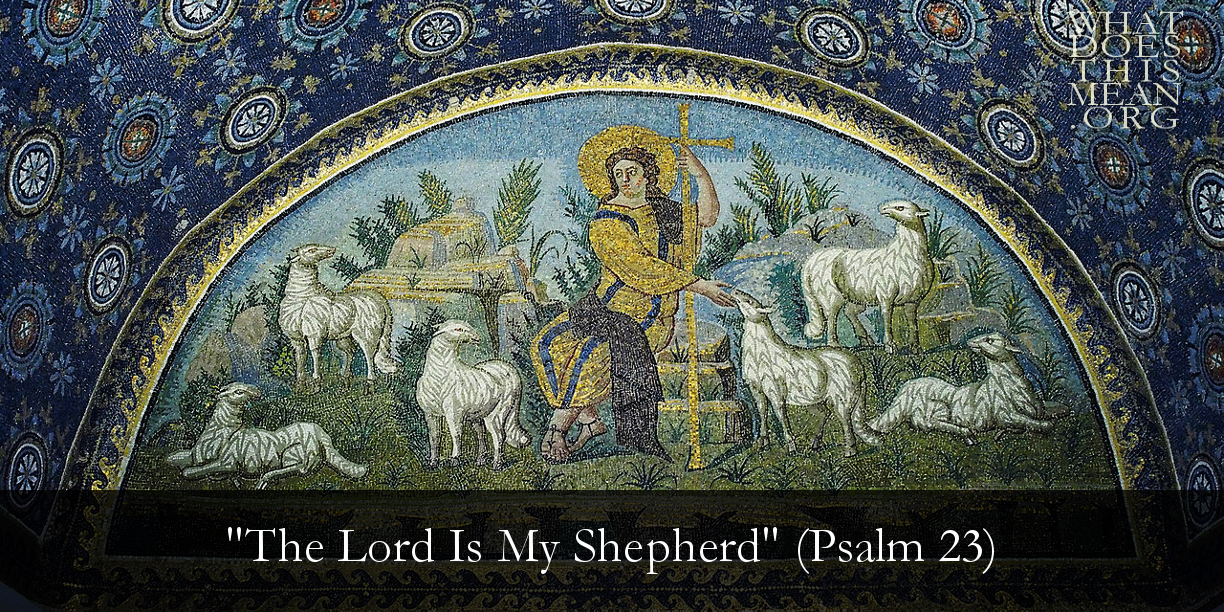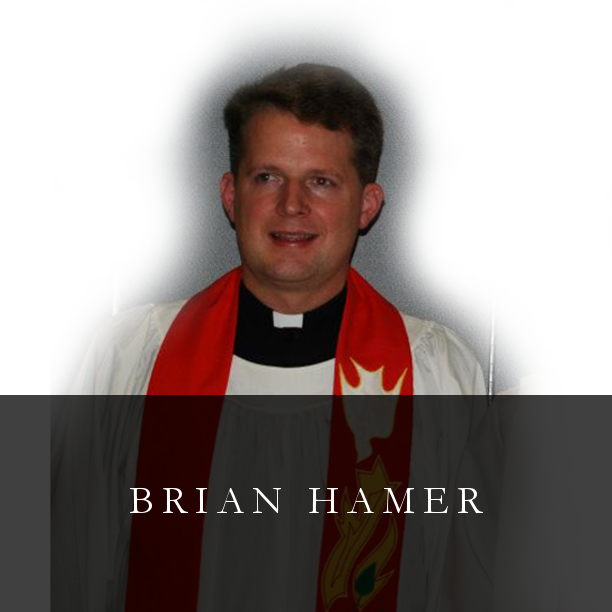No more a stranger or a guest, but like a child at home.
| The 23rd psalm is a psalm of thanks in which a Christian heart praises and thanks God for teaching him and keeping him on the right way, comforting and protecting him in every danger through his Holy Word. The psalmist compares himself to a sheep that a faithful shepherd leads into fresh grass and cool water. In addition, he shows that table, the cup, and oil also as images from the Old Testament worship and calls it God’s Word, as it is also called rod and staff, grass, water, and the way of righteousness. (Reading the Psalms with Luther, p. 59) |
| The Lord is my shepherd: therefore can I lack nothing. He shall feed me in a green pasture: and lead me forth beside the waters of comfort. He shall convert my soul: and bring me forth in the paths of righteousness, for his Name's sake. Yea, though I walk through the valley of the shadow of death, I will fear no evil: for thou art with me; thy rod and thy staff comfort me. Thou shalt prepare a table before me against them that trouble me: thou hast anointed my head with oil, and my cup shall be full. Surely thy loving-kindness and mercy shall follow me all the days of my life: and I will dwell in the house of the Lord forever. |
John Mason Neale (1818-1866), building on numerous patristic sources, says of Psalms 22 and 23: “In the last Psalm [22] we heard of the Passion of Christ: now [in Psalm 23] we hear of the effects of that Passion. It was because He stood in need of everything, that we lack nothing” (A Commentary on the Psalms, I:316). This is most certainly true! In Psalm 22:1, Christ prays, “My God, my God, why have you forsaken me?” Psalm 22 reads as a narrative commentary on the Passion of Christ, as He is forsaken by the Father, taunted by the unbelievers, and left with no one to help Him. But it is precisely because the Shepherd has given all that you and I, the sheep of His pasture, can have all things necessary for life and salvation. He thirsted on the cross that you and I might drink form the waters of salvation. Jesus drank the cup of bitter the Father’s wrath that we would drink the cup of salvation. He walked through the valley of the shadow of death that you and I might pass through death to life eternal. Christ sat at table with his own betrayer that you and I would sit at His heavenly banquet table, as children who have found their eternal Sabbath rest. As one Collect puts it:
Shepherd us, O Lord, with the sweet rod and staff of Thy Word, that we may obtain a place in Thine eternal habitation, and be filled with the plenitude of the celestial banquet; through Jesus Christ, our Lord, who liveth and reigneth with Thee and the Holy Ghost, ever one God, world without end. Amen. (The Brotherhood Prayer Book, p. 165)



 RSS Feed
RSS Feed
